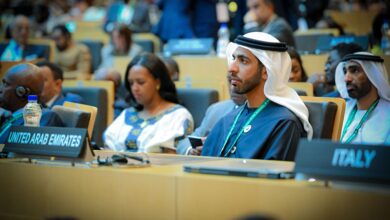UK, Canada, and Australia officially recognize Palestinian State ahead of two-state solution conference
Kuwait welcomed the announcements, stating that this step contributes to regional peace, supports international efforts for a two-state solution, and reinforces the Palestinians’ right to an independent state on the 1967 borders with East Jerusalem as its capital. The Kuwaiti Foreign Ministry urged other nations to follow this example to achieve justice, stability, and prosperity in the region.

In a historic move with significant political and humanitarian implications, the United Kingdom, Canada, and Australia simultaneously announced their formal recognition of an independent Palestinian state on the eve of the two-state solution conference in New York, co-chaired by Saudi Arabia and France.
Several other countries are expected to follow suit.
Nearly 108 years after Britain issued the Balfour Declaration to establish a “national home for the Jewish people” in Palestine, UK Prime Minister Keir Starmer stated, “Today, to revive the hope of peace and a two-state solution, I make it clear that the United Kingdom formally recognizes the State of Palestine.”
Amid escalating conflict in Gaza, he added, “This means a secure Israel alongside a viable Palestinian state. Right now, we have neither.” Starmer defended the recognition against criticism, emphasizing that it is not a reward for Hamas, whose vision he described as fundamentally opposed to peace.
Canadian Prime Minister Mark Carney and the Australian government also announced recognition, pledging to support a peaceful future for both Palestinians and Israelis.
Australia highlighted the international effort to rebuild Gaza, strengthen the Palestinian state, and ensure Israel’s security.
Kuwait welcomed the announcements, stating that this step contributes to regional peace, supports international efforts for a two-state solution, and reinforces the Palestinians’ right to an independent state on the 1967 borders with East Jerusalem as its capital. The Kuwaiti Foreign Ministry urged other nations to follow this example to achieve justice, stability, and prosperity in the region.
Palestinian Authority Vice President Hassan al-Sheikh described the recognition as a historic day, reflecting global support for justice, peace, and the right to self-determination.
Israel, however, opposed the move. Prime Minister Benjamin Netanyahu vowed to contest it at the UN and other platforms, calling it “an absurd prize for terrorism” and a threat to Israel’s existence.
Israeli officials reportedly informed Saudi Arabia of their rejection and suspended the normalization and peace process, while extremist voices called for immediate annexation of the West Bank.
On the ground, violence continued in Gaza, where Israeli forces killed 75 Palestinians and injured 304. Israel also intercepted a rocket launched from northern Gaza over Ashdod.
Meanwhile, Egypt denied plans to expand military operations in Gaza, rejecting claims of violating peace agreements despite reports of troop mobilizations in Sinai ahead of a potential operation.
Follow The Times Kuwait on
X, Instagram and Facebook for the latest news updates












